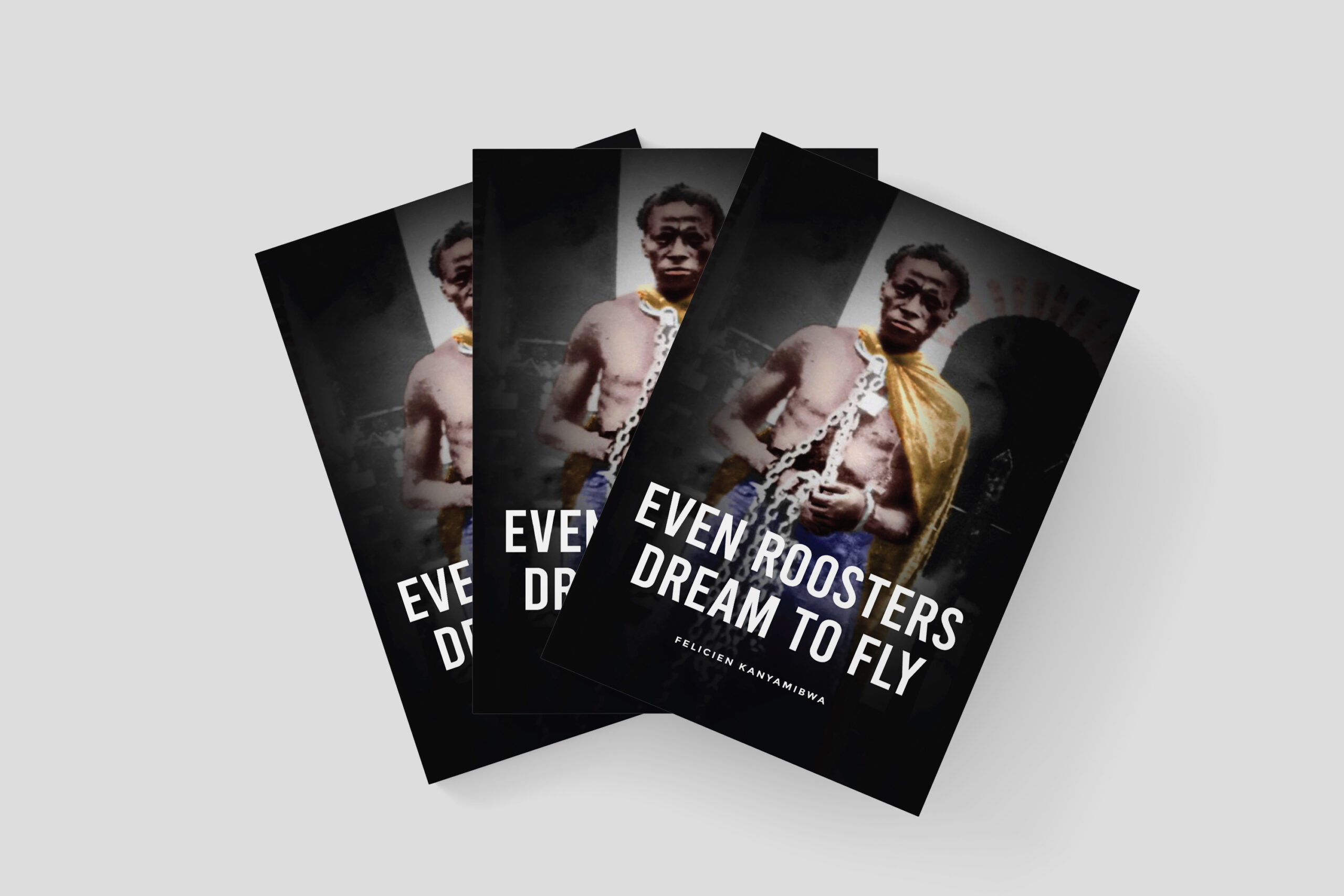In our discourse titled the Dilemma of Dictators Part 1, we set a stage by contrasting a few African dictators with a figure from the Hebrew Bible. In this second part, we will continue by looking at the dilemmas faced by dictators and propose how to overcome them. We focus on how dictators come to power, how they maintain power and how they become the prisoners of the tyrannies they have created. We conclude that the proposed solution to break the shackles of the vicious circle can only found in dialogue.
Dictators usually conquer power through violence: popular uprising, armed rebellion, civil wars or coup d’etat. Thus, once in power, these dictators may fear that the conditions that facilitated their rise to power will also be the precursors for their downfall. As the American Philosopher and psychologist Abraham Maslow said: “If the only tool you have is a hammer, you tend to see every problem as a nail”. Hence, any suspicion of opposition, dissent, or criticism raises a flag. Born out violence, dictators have tough times rising from and above it.
Most dictators come from humble beginnings or overcome unfavorable odds. By cunning, slyness, or sheer bravery, they rise through ranks to the top of the pyramid. Idi Amin of Uganda, Paul Kagame of Rwanda, Jean Bedel Bokassa of Centre Afrique and Muamar Gaddafi of Libya are good examples. Once they reach power, they may see enemies everywhere. Since that attitude and predisposition served them well when they were rising to the top, they have tough time dusting off these acquired bad habits. Adjusting to the new role as the leaders of a nation composed of people with diverse opinions becomes a formidable challenge to overcome. During their rise to power, nobody or very few paid attention to them. However, once the reach the top, they appear to forget they are watched carefully by, as Machiavellli put it, all the people in the valley.
At some point in their dictatorship, dictators identify themselves with the system. Without the dictator the system would crumble and without the system the dictator would not survive. It is a vicious cycle in which tyrants become prisoners of the system they created around themselves. To get to the top, dictators rely on several kinds of people: legitimate democrats, opportunists, cynical and frustrated individuals, adventurers, profiteers, and criminals. Once at the helm of the power, all these early supporters and parasites, except perhaps legitimate democrats, feed, like leaches, on the tyranny to enrich themselves, cover up their crimes, and maintain their privileges. They cannot let it go. Instead, like a Democles sword, they implicitly threaten the dictators with a potential palace coup if necessary to make sure they maintain the grip on whoever is at the top. Instead of reigning on the cronies around them, dictators, like their subjects, become the victims of the tyranny from the aristocrats. Only those among the cronies who dare to challenge the privileges of other cronies are thrown out, if not eliminated. Divisions in tyrannic systems are usually the symptoms of these crises.
Most dictators fear for the after, when the extent of their crimes is exposed and allies turn against them. In fact, most dictators have committed imaginable and unimaginable crimes, either directly or through proxies. Their closets are full of skeletons, so to speak. But literary the path to their power and maintaining it are littered with countless bodies of innocent victims and paved with the blood of legitimate opposition, innocent bystanders, and the victims of power mongering. The nights of dictators are haunted by the souls of known and unknown slain victims.
Despite the strain of power, the remorses, the disgust, haunted nights, and the constant fear of assassination and coups, dictators find themselves unable to say “enough is enough. We had our time. It is time to go.” The dilemmas described above are hard to overcome. Yet, it is easy for the dictators to move on and enjoy the rest of their lives. They may risk their life by making the decision to break the shackles holding them in power, but the freedom and inner peace they feel when they succeed overweight the risk. A few steps can be decided and implemented for a smooth, peaceful transition to the normal life of a citizen.
The steps can be:
- Ask themselves why they sought power in the first place. Some dictators claim to have sought power in order to make a change, to orient the history of the country, to better their lives and the lives of their families and relatives, and to leave a good legacy. By the 10th year in power, most dictators have reached most of the objectives, except perhaps leaving a legacy. After that, they start destroying whatever they built, alienate the people and dig a whole for themselves. Hence, If they could heed the winds of time and say: OK, I am where I wanted to be, let us move to the next step, and enjoy the rest of our lives, they would be in a good posture to be honored for their accomplishment and fora positive legacy. Mwalimu Julius Nyerere of Tanzania and Pierre Buyoya of Burundi were smart in that sense. Jerry Rawlings of Ghana took time to understand that, but he finally got it and is enjoying his “hard earned” dictator money.
- Remember that their predecessors were also once as mighty. If the dictators managed to overthrow those who came before them, then why do they think that similar situations cannot happen to them? There is a good trend in West Africa, were military officers overthrow dictators but let others lead.
- Remember that is takes more courage to sit with the opposition figures than to assassinate, try to fight or impose violence on them. It takes even more courage to work with the genuine opposition than to be surrounded by cronies, relatives, and the likes.
To conclude, we may see that among the African dictators, Yoweri Museveni and Robert Mugabe have found a right way to move from tyranny to the right path, even though, they still need to give up power for the benefit of the next generation or cluster of leaders. Those who ceded power before them, such as Julius Nyerere of Tanzania, Jerry Rawlings of Ghana, Daniel Arap Moi of Kenya enjoyed or are enjoying their life as citizens. Many dictators have learned that avoiding the unavoidable may be a futile exercise. Robert Mugabe of Zimbabwe agreed to work with Morgan Tsvangirai, Mwai Kibaki of Kenya with Raila Odinga.
Changing the constitution to favor ones’s bid like Joseph Kabila of the DRC just did, appointing his first cousin as Prime Minister after jailing all the opposition figures like General Paul Kagame did, saturating the political, economical, military institutions by one’s ethnic group members as it is in Rwanda and Uganda, do not resolve the problems and dilemma dictators face.
This stratagem may work for some time, but the inevitable will happen. It has happened in South America, Asia and now is happening in the Middle East and Africa.
As Yoweri Museveni recently said in his statement “Libya Needs Dialogue: “
- A legitimate internal insurrection, if that is the strategy chosen by the leaders of that effort, can succeed. The Shah of Iran was defeated by an internal insurrection; the Russian Revolution in 1917 was an internal insurrection; the Revolution in Zanzibar in 1964 was an internal insurrection; the changes in Ukraine, Georgia, etc., all were internal insurrections.
It should be for the leaders of the Resistance in that country to decide their to sponsor insurrection groups in sovereign countries. I am totally allergic to foreign, political and military involvement in sovereign countries, especially the African countries. - All this notwithstanding, Col. Gaddafi should be ready to sit down with the opposition, through the mediation of the AU, with the opposition cluster of groups which now includes individuals well known to us – Ambassador Abdalla, Dr. Zubeda, etc.
- know Gaddafi has his system of elected committees that end up in a National People’s Conference. Actually Gaddafi thinks this is superior to our multi-party systems. Of course, I have never had time to know how truly competitive this system is.Anyway, even if it is competitive, there is now, apparently, a significant number of Libyans that think that there is a problem in Libya in terms of governance. Since there has not been internationally observed elections in Libya, not even by the AU, we cannot know what is correct and what is wrong. Therefore, a dialogue is the correct way forward.
Unless we are mistaken, when Yoweri Museveni talks about dialogue, it is dialogue with the true opposition, including an armed opposition.
Fore example, Yoweri Museveni himself needs to open a dialogue with the leaders of the Lord Resistance Army (LRA) and the Allied Defense Forces (ADF-NALU). During the dialogue, it will be decided by Ugandans how crimes committed by LRA and ADF-NALU leaders will be handled. Anyway, Yoweri Museveni himself, despite his good rhetoric, is not an angel. He will have to account for the Luwero triangle massacres committed by the Rwandans fighting under his command.
In the same vein, General Paul Kagame of Rwanda will have to sit not only with the unarmed opposition, but also with the Democratic Liberation Forces of Rwanda (FDLR), Rally for Unity and Democracy (RUD-Urunana), Rally for the Rwandan People (RPR), and the alleged Kayumba-Karegeya armed group. Crimes attributed to FDLR leaders will be covered during the dialogue. So will be the crimes of genocide and crimes against humanity and war crimes attributed to General Paul Kagame and his army by the United Nations and the French and Spanish courts.
Felicien Kanyamibwa. PhD, MqBA
©AfroAmerica Network, March 2011









